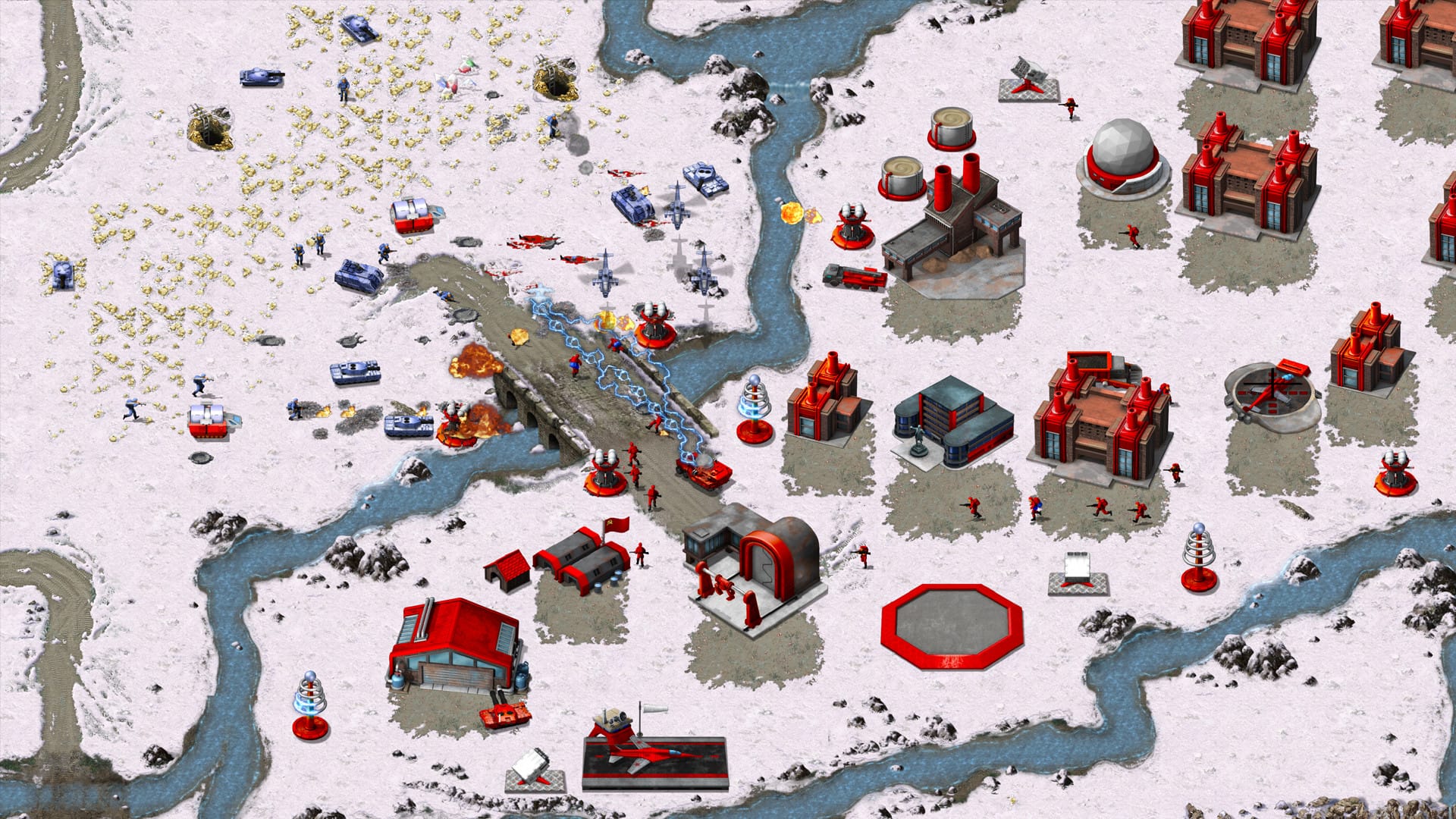Many of the games we play on our Wheel of GeForce NOW streams show off what the technology is capable of because it lets us crank up every single setting on a game without caring what might happen next.
But it was a real joy to spend time a few weeks back with the Command & Conquer games, because it immediately brought us collectively back to a wholly different era of playing video games.
It's not just about how games have changed, either. It's about how we have changed, too. And "we" isn't just Rob and Patrick—it's gaming culture and the standards and resources we use to determine what to play and what is "fun."
If you can look up a video that tells you how you're supposed to play a game, how you're supposed to have fun, won't that influence how you end up playing and enjoying it, too? Is that a better world than one where you're on your own?
Patrick: When we were playing various Command & Conquer games recently, and then reminiscing about my time with games like BioForge and your time with games like Myth, it reminded me of a pretty unique time in life, one that’s impossible to capture as you get older:
- You don’t know what you even like
- Even if you like something, you’re not entirely sure why
- When we played these games, there was no way to know the right way to play
The reason I constantly joke about spamming mammoth tanks in Command & Conquer is because that’s the dumb and goofy “strategy” I deployed over and over playing those games, an early indication that, perhaps, Patrick’s brain was not suited for coming up with more legitimate tactics. But whereas today I feel a sense of unease—shame, even—at feeling bad playing a game, this was an era, both because video games were inherently more mysterious during this era and because I was young, where I didn’t know, or it didn’t occur, to experience that unease.
I remember bringing home a copy of Civilization II because it was so highly praised in PC Gamer. (Remember, it alongside EGM, might as well have been my personal bible at the time, and if they ended up giving a game a 90+ review, it basically meant I’d be buying it.) There was no reason to think I should have any interest, or derive any fun, from Civilization II, based on the games that I’d previously played. Doom, Dark Forces. Mostly shooters. And the massive manual that came with Civilization II—an unholy 206-page tome that basically meant the game also came with a book—did not give me much confidence playing the game would change that.
But that also should’ve been the case for SimCity 2000, which came out a few years prior…
…And I had a blast with SimCity 2000. These games were not about endstates for me, they were about being tossed into the unknown and, over time, figuring out your own kind of fun.
Sure, if you were lucky enough to have internet access, you could hop on a place like GameFAQs and page through an ASCII walk through made by some random stranger, but for the most part, I was booting up these system-heavy simulation games and basically winging it.
Some of that curiosity, I think, was fueled by the demo disc phenomenon at the time. Demos were a low stakes way to play with a game, get a fuel for what it was doing and how it made you feel, without the commitment of buying. I’m sure there were demos that I spent dozens of hours playing, because the demos were enough. But there’s fewer opportunities for that these days in that format! There are demos, but chances are you’re downloading one because you want it.
This has been one of the benefits of having kids, actually. One reason I was excited to have kids was being broken out of my own habits. Games like Minecraft unlocked because of playing it with my kids and being a support beam in their own adventures—I see fun through their eyes.
So in that way, I’ve captured some of that lightning in a bottle again. That mystery. It’s nice.

Rob: Hmm, reading this I feel like there’s two threads you’re touching on. The first is a kind of inherent self-consciousness that comes with games now. The second is the way it’s harder for games to catch us by surprise. Partly that’s because we aren’t kids and it’s harder to recover that openness to discovery and curiosity, but also because the way we find out about games and choose from among them leaves less space for mystery.
I’ve talked about this before but for a long time RTS games did a great job of concealing how hard they were and how much they expected of players. My skills have atrophied but they were never more than passable. I don’t think you and I played Red Alert very differently from one another: band-select the best units you have and attack-move into the other guy’s base or ore field. I was in it to see sick, goofy cutscenes and to watch my sci-fi Micro Machines unleash holy hell on each other. My dad, one of the clumsiest PC users I have ever encountered, played Age of Empires extensively on his laptop without ever feeling more than a pleasant frustration as he built his city walls or sent his trebuchets against enemy citadels in a campaign.
Library, Zeal or Foundation tier
Subscribe at Library, Zeal or Foundation tier(s) or above to access "The "Right" Way to Play". You'll also get access to the full back catalog of that tier's content.
Sign up now Already have an account? Sign in